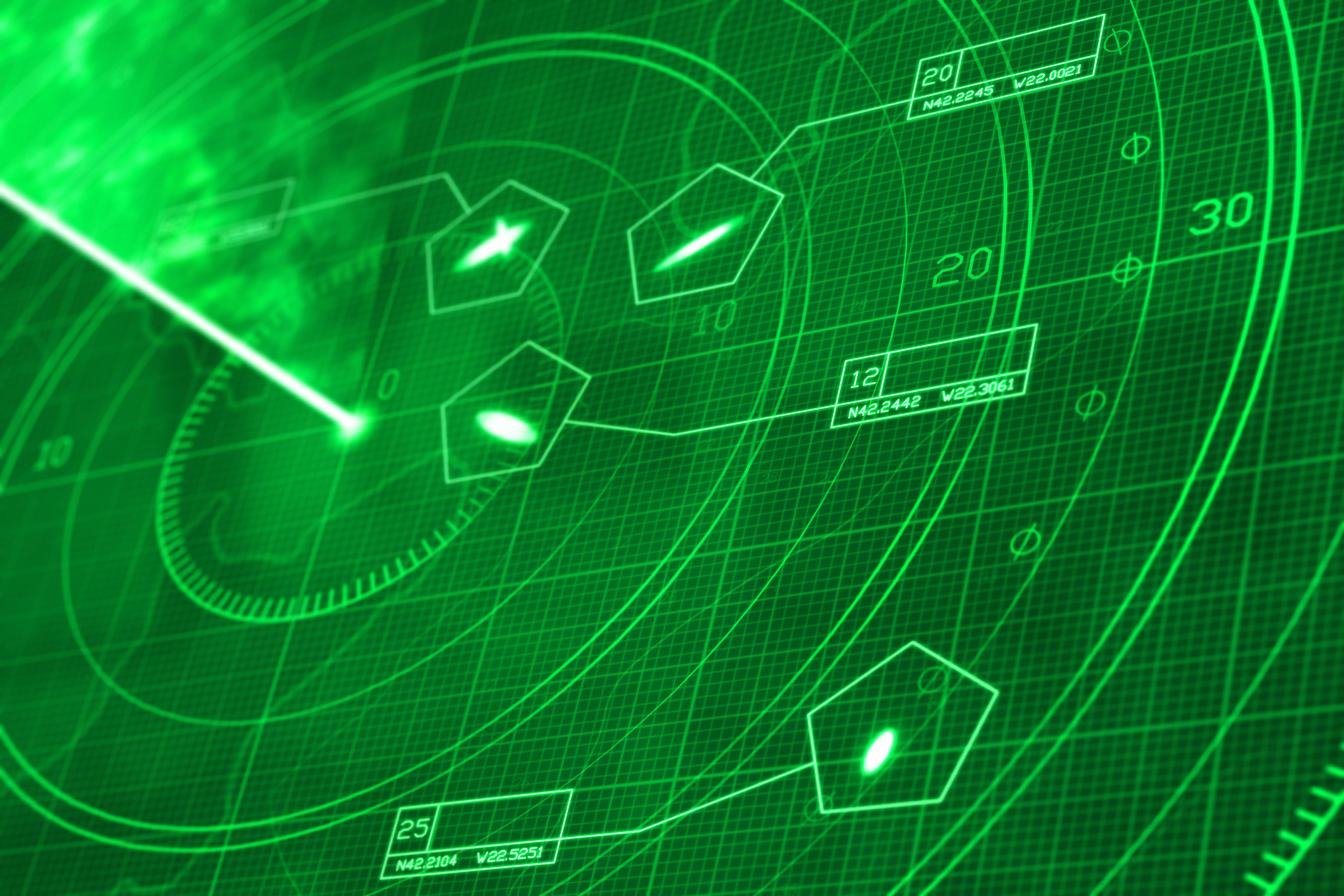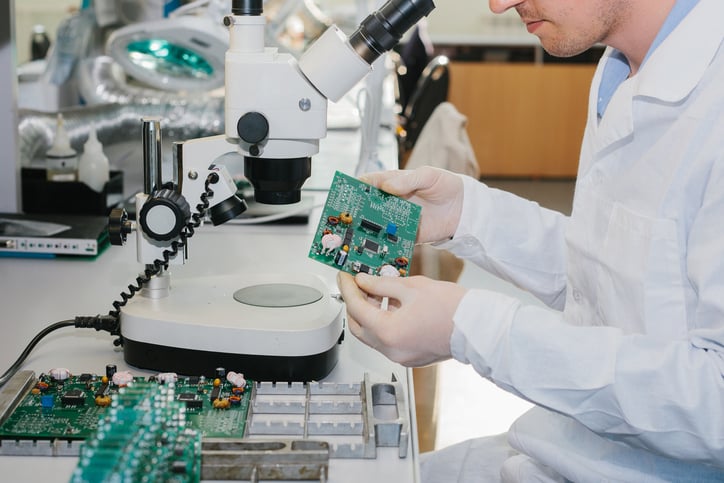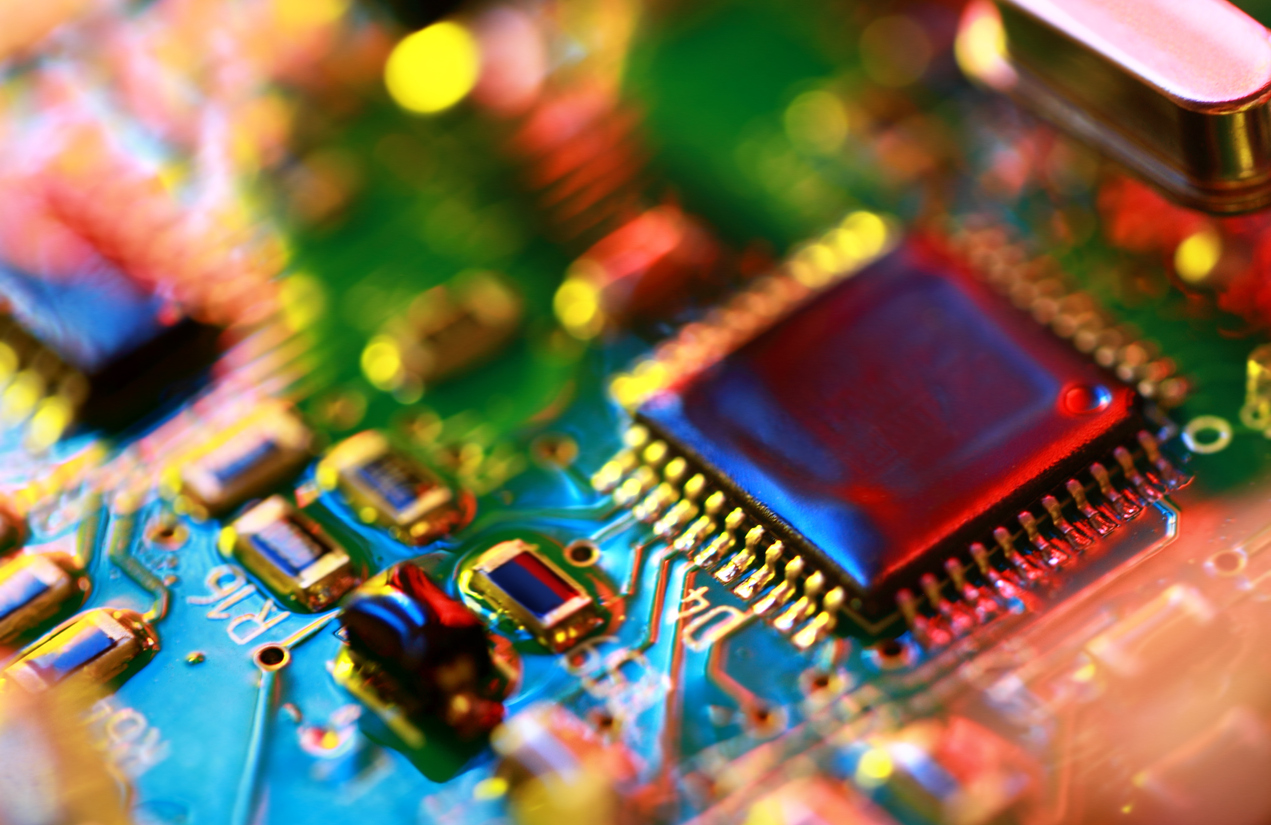Nadcap vs. AS9100 Standard for Electronics: What's the Difference?
If there's one thing that takes center stage in the aerospace industry, it's safety. This, of course, comes hand in hand with high-quality components.
 When an OEM is sourcing out work -- let alone aerospace electronics manufacturing -- it’s likely to come across companies that boast about all sorts of certifications and capabilities.
When an OEM is sourcing out work -- let alone aerospace electronics manufacturing -- it’s likely to come across companies that boast about all sorts of certifications and capabilities.
One certification that aerospace electronics companies use to market to prospects and existing customers is AS9100. The standard is published by the International Aerospace Quality Group and is a quality management systems certification for the requirements of aviation, space, and defense organizations.
Where aerospace electronics contract manufacturing (ECM) companies start to separate is in how thorough they are in keeping up with AS9100 updates.
To say the AS9100 certification process is intense would be an understatement. Every OEM and aerospace company needs to know the answer to these basics:
There’s no shortage of manufacturing certifications out there. The most common is ISO 9100:2015 -- AS9100 is an aerospace-specific extension of that concept. It’s frequently called the ISO AS9100 certification -- this is incorrect, as the standards are not directly affiliated with ISO.
Specifically, AS9100 accreditation means that a manufacturer has installed effective quality and communications systems, and passed additional requirements for exceptional quality control and safety. AS9100 certification may seem like a bunch of letters and numbers jumbled together, but it's really a clear sign that you’re doing business with a high-quality ECM.
You'll often find a letter tacked onto the end of AS9100. These letters -- A, B, C or D, -- denote the updates made to AS9100 over the years. The further you get down the alphabet, the more recent -- and prestigious -- the certification is.
The most recent upgrade, AS9100 Revision D in 2016, focused on risk management procedures and control of outsourcing and external purchasing by the contractor. AS9100 Revision C, enacted in 2009, addressed companies repeatedly delivering non-conforming products or delivering goods past the agreed deadline -- basically, documenting procedures as required, but failing to actually follow them.
If your partner is AS9100D-certified, its quality management is the best of the best, and it’s gone to great lengths to evolve its processes. AS9100D certification is evidence that an aerospace electronics supplier is capable of meeting the highest standards possible.
Need Help with PCB Assembly? Check out our AEROSPACE ELECTRONICS PCB ASSEMBLY & DESIGN GUIDE
It’s fairly obvious on the surface why IAQG AS9100 certification is so important. But there are issues specific to aerospace PCBs that necessitate a certification specially made for these kinds of electronics.
Aerospace components are always IPC Class 3 electronics. They aren’t cheap kids’ meal toys -- if they stop working, millions of dollars or even human lives are at risk.
When standards are created, a committee or governing body comes together to develop them in a way that helps move the industry forward. OEMs on the committees for aerospace certifications developed the AS9100 standard -- and its updates -- based on quality, integrity, and the standards aerospace components are judged upon.
For instance, one of the biggest problems in aerospace electronics manufacturing is the risk of buying counterfeit parts available on the market on any given day. That’s why IAQG added a counterfeit parts provision to the latest version of the AS9100 standard.
After electronics manufacturing services companies earn AS9100, they can expect to go through regular renewals. This auditing ensures they're complying with any revisions and allows them to enhance their certifications.
AS9100 is maintained like all other standards: Every three years a recertification auditor reviews samples to verify compliance with all clauses of the standard. This is followed by two years of surveillance audits, which are shorter and only review a sample of clauses.
As long as an OEM is staying up to date with the guidelines and maintaining accurate documentation, renewals should be nothing more than a formality.
A contractor that’s not already an AS9100-certified company is going to have a hard time picking up projects.
That's because the startup stage of production is going to be longer if an OEM doesn't already have the certification. In rare cases, the customer is willing to wait for the ECM to go through the certification process.
In general, it’s best to work an ECM that’s already certified. You’ll avoid any unnecessary delays in production, and you’ll have assurance the contractor is familiar with aerospace design standards.
The updated AS9100 accreditation will continue to help aerospace companies produce safer and more reliable products. It’s amazing what you can accomplish with a more organized way of doing things.
All AS9100-certified companies are on the IAQG OASIS database, where potential customers can review their standings, including their certification scope and even audit findings.
Anyone conducting business with a contract electronics manufacturer should look for AS9100 certification first. It's a gold-star sticker of approval that proves the company abides by industry standards. Those that don't have it may be working unethically or producing poor products, and the Class 3 nature of aerospace electronics means failure is not an option.
(Editor’s Note: This blog was originally published in December 2019 and was recently updated.)

If there's one thing that takes center stage in the aerospace industry, it's safety. This, of course, comes hand in hand with high-quality components.

Understanding your marketing is key to a successful product run. That applies not only to your customers, but their home country as well.

It seems simple enough. If you’re a manufacturer who uses electronic components to build your products for American or international markets, you...